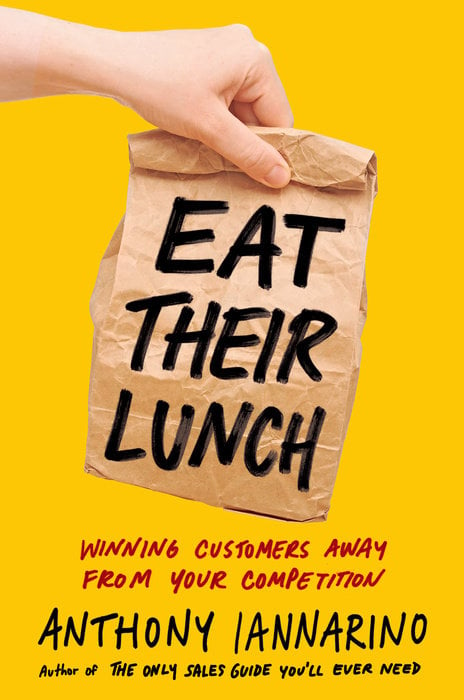The Gist:
- You need to head off your client’s challenges before they become a problem. This means changing your clients by changing how you sell.
- Becoming a trusted advisor requires both “trust” and “advice” that benefit your clients.
- Waiting until your clients are harmed to help them is not consultative. A trusted advisor would interrupt them before being harmed.
Over the last couple of decades, technologists sought to disrupt certain industries through a number of primary strategies, like providing a better transactional buying experience (Amazon), reorganizing resources to allow them to be fully utilized (Uber, Airbnb, Instacart, and DoorDash), moving the industry onto a platform (Netflix, Hulu, and Disney), or monetizing human beings for advertisers (Facebook, YouTube, and Google).
Earlier industrial evolution, which moved at a much slower pace, was the product of incremental improvements in quality or design or marketing, with the innovations providing a temporary advantage without radically disrupting a well-established and stable industry. Evolution has always demanded that companies (and industries) improve or find their way into the history books, but the radical reshaping of our world, our economies, and our lifestyles seems to be moving at a blistering pace.
Despite this constant change, when your approach has worked for years or decades, it can be difficult to believe that it isn’t going to work in the future. It may seem simplest to hunker down, protect yourself and their company, and hope you can weather the storm. But recognizing and responding to that storm is part of our obligation as salespeople.


The Bearer of Bad News is Good News
The fictional advisor Grima Wormtongue warned King Théoden, “Ill news is an ill guest.” (If you don’t know who those characters are, I’ll forgive you, but it still makes me sad.) In the real world you and your clients live in, though, ill news should be a welcome guest, unless you show up too late.
As far as I can tell, evolution spares nothing and no one. It demands that individuals adapt to their environments, a charge that extends to organizations as well. To live, thrive, and survive, you are forced to change. Helping your clients change means changing how you sell—and how you think about your obligations to your clients. If you want your clients to change, then you must change first. The idea here is captured in the old saw that “an ounce of prevention is worth a pound of cure.” You want to head off challenges before they become problems, not after they have taken root. The bearer of bad news is only good news when they arrive early and with a plan in hand.
Years ago, I had a conversation with a client who misunderstood the decision he was charged with making for his company. I tried repeatedly to provide him with the information he was missing, but he refused both the data and my advice. So, I tried a different tack: “In September, you are going to die,” my gentle way of telling him his business was going to fail. Even that hyperbole wasn’t good enough. I failed him.
In September, his business indeed ground to a halt, but by then I had no way to help him. He was unable to adopt a new story, even in the face of overwhelming evidence that caused his competitors to change.


Building Trust Through Advice
Good questions and a “no pressure” approach to sales don’t automatically make you a consultative salesperson, even though good questions are very helpful and no one would legitimately suggest using high-pressure tactics to force your prospective clients to sign a contract. What makes you consultative is your ability and willingness to provide your client with the advice they need to hear, even when they’d rather not listen. The fact that a client doesn’t want to face an unpleasant reality about their industry doesn’t mean that it isn’t going to harm them, if not now then soon.
As much as I talk about giving good advice to your clients, I admit that I cringe when I see salespeople who declare themselves a “Trusted Advisor” on their LinkedIn profiles. Even though that may be true, it’s not a title you can give yourself: the only people who can deem you a trusted advisor are the ones you advise. It’s something you should aspire to become, because it means that you have both “trust” and “advice” that benefits your clients. But it also means that you are proactive, preventing your clients from being harmed by informing them about what they need to do before they know they need to do it, or by helping them take advantage of an opportunity before it evaporates.
On the social media sites, there is a perennial argument about the cold call. The charlatans, those self-loathing faux sales experts who are really just marketers, love to draw attention to themselves by preying on those who fear the phone or who believe Silicon Valley’s mantra that sales can be fully automated. They’d much rather wait until there’s a problem before they “helpfully” spam their would-be clients with emails and LinkedIn messages. But you cannot possibly hope to be consultative, let alone a trusted advisor, if you wait until your client is harmed before you are willing to intervene and provide them with the help they need. A trusted advisor would interrupt their prospective client to protect them from being harmed.
Because your client needs to change, you need to change how you advise them: you must recognize when change is coming and what they must do to use that change to their advantage. This is what is required of a consultative salesperson and one who hopes to be a trusted advisor.
Do Good Work
- What ways do you need to change how you sell in order to change your clients?
- Are there any decisions your clients need to hear, but might not want to?
- What upcoming changes are coming and what are you going to do about it?








.jpg?width=768&height=994&name=salescall-planner-ebook-v3-1-cover%20(1).jpg)



Comments